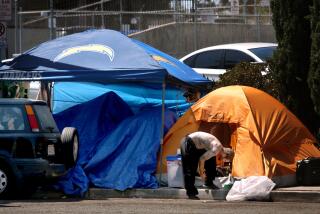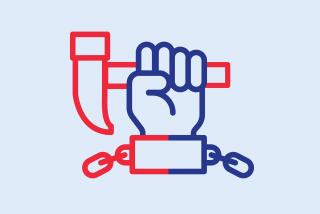Judge issues order allowing force-feeding of inmates on hunger strike
SACRAMENTO -- California prison officials have obtained a federal court order to allow force-feeding and other steps to keep prison hunger strikers alive even if they declared they do not want such medical intervention.
In a filing Monday afternoon to U.S. District Judge Thelton Henderson, the state argued there is a “risk that inmates may be or have been coerced into participating in the hunger strike” and signed those papers against their will.
Henderson agreed, signing an order that would allow the state to involuntarily feed any prisoner it deems was coerced into signing a “Do Not Resuscitate” order, as well as those who signed such papers just before the July 8 protest began.
It also allows involuntary feeding of those prisoners who a state doctor decides have “become incompetent to give consent or make medical decisions.” That includes inmates who may be unconscious, said Joyce Hayhoe, a spokeswoman for the prison medical office. “It’s all based on a doctor’s best medical judgment at the time,” she said.
The chief spokeswoman for the California Department of Corrections and Rehabilitation declined to answer questions regarding how that order would be interpreted, saying those are medical decisions.
The provision to ignore recent healthcare directives was included in the motion, said department spokeswoman Deborah Hoffman, because “we have information that inmates have been coerced into taking part in this hunger strike and signing ‘do not resuscitate’ directives, and this seeks to protect those inmates from serious harm.”
The motion is also signed by lawyers for the court-appointed agency running prison medical care and the Prison Law Office, which represents California inmates on healthcare issues.
However, the medical receiver’s office states it takes no position on the state’s request to ignore prisoners’ recent medical directives, and the Prison Law Office asks that the order be limited to only the current hunger strike.
The protest continued Monday in six prisons, with 69 inmates refusing food for 43 days and 67 others fasting for shorter periods.
The medical receiver’s office said Monday two prison protesters were referred for medical treatment, including one in Sacramento sent to a community hospital for observation.
ALSO:
Calipatria hunger strikers resume eating
L.A. County sheriff seeks ability to release felons
Brown: Prison expansion to cost hundreds of millions
On Twitter: @paigestjohn
More to Read
Get the L.A. Times Politics newsletter
Deeply reported insights into legislation, politics and policy from Sacramento, Washington and beyond. In your inbox three times per week.
You may occasionally receive promotional content from the Los Angeles Times.










